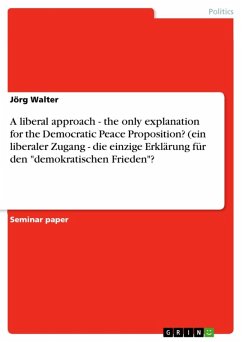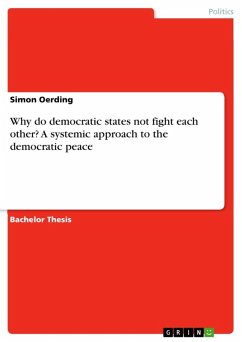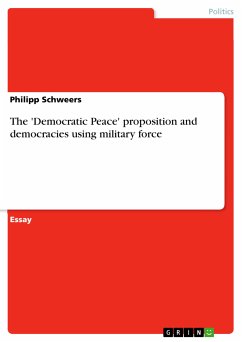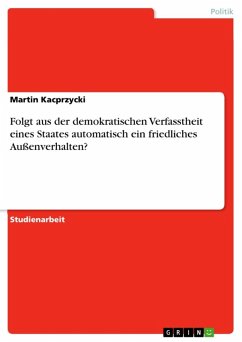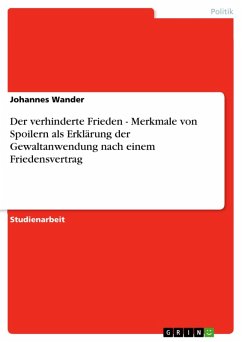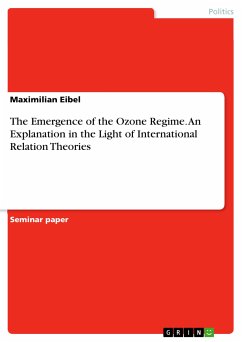Seminar paper from the year 2004 in the subject Politics - International Politics - General and Theories, grade: 1,2, Free University of Berlin (Otto-Suhr-Institut), course: HS Demokratie und Frieden, language: English, abstract: In the early 80s political scientists discovered that they overlooked something. Earlier there was an agreement that democracies act as war prone in their foreign policy as non-democracies. The US was fighting in Vietnam; Great Britain in the Falklands and France was fighting in India and Africa, only to name three examples. It was generally assumed that domestic politics had no influence on the foreign policy of a state. Michael Doyle initiated a dramatic change in this point of view in 1983.1 He suggested that there was a huge and important difference between democracies and non-democracies: democracies do not - or very seldom - fight each other. Since this time uncountable numbers of essays were published, which tried to find an answer for this correlation called the DPP - the Democratic Peace Proposition. Most of them take a liberal approach, and today the liberal approach for explaining the DPP is the leading one. Although there are a lot of scientists working in this field, there are still questions, which cannot be answered with a liberal approach. In the first part of my thesis I will introduce the main arguments and aspects of the liberal explanation of the DPP and show in a separate part where this approach failed. Based on these findings I will introduce the (neo)-realistic approach as an alternative explanation for the DPP - particularly the explanation that is represented by Erol Henderson. As well as in the first section I will show at the end the problems and contradictions of this theory. In the last part of my thesis I will bring these two approaches together and try to give an answer to question, if today a (neo) realistic approach - faced by a superior number of liberal explanations - can help to explain the DPP or show aspects of the DPP which can not be analysed by a liberal point of view. I will also give a short overview of research fields which consider if perhaps both theories, the liberal and the realistic one, failed in a context of globaliziation. [...] 1 Hasenclever, Andreas, 2003, Liberale Ansätze zum "demokratischen Frieden". In: Siegfried Schieder and Manuela Spindler, Theorien der Internationalen Beziehungen, Oppladen, p. 199.
Dieser Download kann aus rechtlichen Gründen nur mit Rechnungsadresse in A, B, BG, CY, CZ, D, DK, EW, E, FIN, F, GR, HR, H, IRL, I, LT, L, LR, M, NL, PL, P, R, S, SLO, SK ausgeliefert werden.

